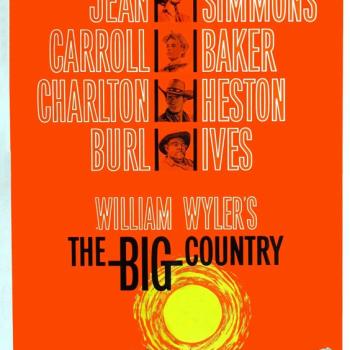Now Featured at the Patheos Book Club
The Freedom of Being
At Ease with What Is
By Jan Frazier
Book Excerpt: The Introduction
Copyright © 2012 The Freedom of Being by Jan Frazier
Reprinted with permission of Red Wheel Weiser
Was it lucky, or does it mean nothing at all, that one of the earth's creatures happened to grow in such a way that it could know itself? That it had the capacity to lose this knowledge, then be restored to it, and call that homecoming heaven? The raccoon does not do this. It never lost itself. But then, the raccoon cannot experience being that's aware of itself. The raccoon isn't endowed with what we are—which carries with it the ability to while away a life by spending it all inside the head. It wouldn't dawn on a raccoon to do anything but what it's doing to stay alive.
Was it lucky that we evolved? That there should be a planet amenable to life (outlandishly improbable enough); that in this world, so lavishly creatured and planted, there should be one bumbling animal that managed to grow a brain so good it could do impressive things (imagine, speak, string thoughts together, invent concepts like tomorrow, enemy), endowing it all with the feel and taste of the real? We made that most devastating of discoveries: that it is possible to neglect to notice that we exist. To be so fixated on our minds' creations that the lapse in presence can sustain itself for the duration of an entire life. Thus do we lose contact with our essence, with our being-ness, thinking our way right out of the heaven we were born into: this persistently beating heart, the great green and blue world, the vast black between the stars—in which we miraculously exist.
We manage not to notice.
But we are still here. There is possibility yet, in the given time, to come alive, to remember ourselves. Our intelligence is wide-ranging enough to intuit that what the mind produces, what it has access to, may not be the ultimate truth. We are like our own prodigal children. Though we've become lost in all our highly evolved mental finery, the truth of what we are can be discovered anew. We can come home to the presence we were born to. The raccoon will never know the joy of the return. (It wouldn't think to leave.) But we who left—we can realize we've wandered off and (what could be more lucky?) we can find our way back. The joy of the return—to be had by no creature but us—exceeds every other possible joy.
The sky is not big enough to hold it.
It looks for all the world as though the condition a person starts with, and whatever's cobbled together from there forward, is what constitutes life. Wherever meaning or value is to be found, it must be there: in the ways we spend time, the choices we make, the things we accomplish, what takes place in the world around us. That seems to be the whole story. It all goes on for each of us, feeling quite real and important. Whatever the degree of satisfaction, life as it is ordinarily defined seems to be the stuff of human existence.
Yet all the while, there is the presence of something else, something real, that's independent of the life we regularly imbue with meaning. This something is everywhere, always, pervading all that is—including our very selves. We can fail to notice it. There might be fleeting awareness of it. Seldom is the knowing sustained. Yet this more substantial reality is persistently here, even as a whole life may be lived at a perceived distance from this most extraordinary thing attending each moment.
This primal condition is the source, the fulfillment, of every longing—of everything we try, in our ordinary lives, to bring about by familiar means. We look for it in relationship, in creativity, in achievement, in the life of the intellect, in physical challenge (mountain climbing, marathons). We seek it in the accumulation of experience, in systems of belief, in the dreamed-of future. We imagine it awaits us in the afterlife. Oh, the sad irony. We look for it outside ourselves, in the insubstantial, the transitory, where it will never be found. All the while, this unconditional delight, this unwoundable state of well-being, is the essence of our nature.
How can we possibly miss it? We have trouble turning from the usual suspects to satisfy the deep ache for wholeness, fulfillment, truth. We can't help thinking love will do it, or good health, or attainment of one thing or another. Perhaps being needed will do it, or being useful, or earning recognition. We look past what is already here, within, waiting for us to know our selves.




